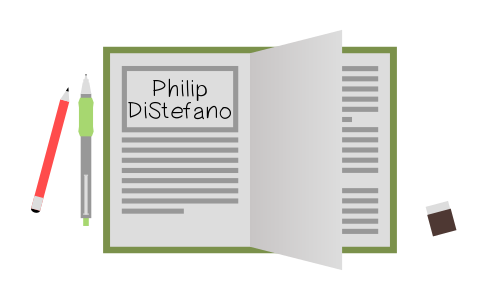Now that you have an idea of both your topic and your audience (and possibly a first chapter), it’s time to think about your story as a whole. Something I see asked a lot in writing communities is “Do I need an outline?” which is a fair question, but one that only you can answer. There are multiple ways to plan out your story, and like most facets of writing, there simply is no correct method. To make this easy to digest, I’ll break it into three categories:
- Meticulously outlining
- Loose planning
- Winging it
My favorite author, Eric S. Nylund, uses method #1. I’ve seen him post on Facebook about a 133-page outline (!!!), and I have no doubt that the method works well for him (read Signal to Noise if you haven’t, and you’ll agree with me). However, there are also people for whom a large part of the enjoyment of writing is the ride. Even though you’re creating the characters and the world they exist in, it’s still very exciting to “find out” what happens to them, and for them, method #3 – just writing as you go with no real outline – is the method they’ll get the best results from.
Then there’s method #2, which as you might guess, is a combination of methods #1 and #3. There are plenty of people, like me, that don’t like to meticulously plan a story, but at the same time, need some sort of structure or basic idea of some major plot points to succeed. That’s exactly how I wrote Iterate – with an idea of most major plot points in my head, including the ending, by the time I’d completed chapter 1.
Now, figuring out which method works for you should be a lot less tricky for you than it was for me (because you’re reading this!). My first novel was written with an outline that was about 3-4 pages long. It wasn’t quite what I’d call ‘meticulous,’ but it was detailed enough to where everything that would happen was already decided, and all that was left was to write it. That took a lot of the fun out of it for me, and while I still eventually finished it and enjoyed writing it, it was by far my most procrastinated work, and did take the longest to complete (~5 years). I want to make sure to stress how much of that time was pure procrastination, though.
Writing my second novel was an experience that I have fond memories of. I started writing one day, then wrote every day for 5-6 weeks until it was completed – a total of just over 80,000 words. I had no outline, no real plan; I just wrote. Strangely enough, it worked (I’ll explain why this is strange in just a bit). I ended up with a novel that I was pretty happy with, and remain happy with to this day. I plan on doing a bit of editing to it after I release Iterate, then I will re-release it under my real name instead of my pen name.
Anyway, thinking I had found my groove, I tried this method again. Then again…and again…
Basically, I started writing a few novels like this that all ultimately got abandoned until a few years later while writing my third novel. Once I had chapter 1 and knew I liked the idea, I ran with it to completion, and…I wasn’t happy with the result. It was fun to write, but the story got really convoluted, took some strange turns, and overall just felt like a bit of a mess. I finished it, though, gave it a proper editing treatment, and set it aside.
I tried this one more time, using the first couple of chapters from a previously abandoned novel whose concept I truly enjoyed, and again, ended up abandoning it. I simply could not make this process work again.
This had me pretty discouraged, but my love of writing kept me motivated. I knew that meticulous planning didn’t work, and I knew that no structure at all didn’t work. Based on that, I decided to marry the two when I decided that Iterate would be my next novel, which meant deciding on basic plot points in my head very early on in the process. What this did for me was facilitate checkpoints in my mind. I somehow needed to get from one plot point to the next, which meant I still had lots of stuff to make up, and because of those plot points, I always had a goal to write to. I never had to spend time thinking which direction the story needed to go because I already knew. This resulted in Iterate not falling victim to the problems my third novel fell victim to – no strange turns, no convoluted plot, no mess. It is, inarguably, the most well-structured work that I’ve completed.
So, what does that mean for you, the amateur author that doesn’t have the experience of four novels under his or her belt to figure out which method works best for them? Only you know yourself, but the simple fact is that starting at a more neutral place leaves you better off if you decide to switch entirely to one of the other methods. I made the mistake of going all in on both of the extremes before trying the middle ground, and while it did work for me once, it didn’t in the long run. By the time you reach around 20,000 words, you’ll know if the method you chose is working, and can adjust your strategy from there.
Just remember, if at any time you just can’t figure out what to do next, you can do this. Don’t stand in your own way.
